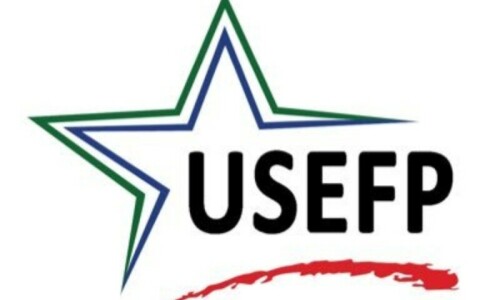
TEHRAN: Ultraconservative Ebrahim Raisi was inaugurated on Tuesday as president of Iran, a country whose hopes of shaking off a dire economic crisis hinge on reviving a nuclear deal with world powers.
“Following the people’s choice, I task the wise, indefatigable, experienced and popular Hojatoleslam Ebrahim Raisi as president of the Islamic Republic of Iran,” the country’s supreme leader Ayatollah Ali Khamenei wrote in a decree read out by his chief of staff.
Raisi replaces moderate president Hassan Rouhani, whose landmark achievement was the 2015 nuclear agreement between Iran and six world powers.
From the outset, Raisi will have to tackle negotiations aimed at reviving the nuclear deal from which the US unilaterally withdrew imposing sweeping sanctions.
The 60-year-old also faces warnings to Iran from the United States, Britain and Israel over a deadly tanker attack last week for which Tehran denies responsibility.
Raisi, in his inauguration speech, said the new government would seek to lift “oppressive” US sanctions, but would “not tie the nation’s standard of living to the will of foreigners”.
“We believe the people’s economic position is unfavourable both because of the hostility of our enemies and because of the shortcomings and problems inside the country,” he said.
In his response, Khamenei acknowledged Iran suffered from “many shortcomings and problems”, but quickly added: “The country’s capabilities are even more numerous.
“Fixing economic problems takes time and cannot be done overnight,” he said.
Raisi won a presidential election in June in which more than half the electorate stayed away after many heavyweights were barred from standing.
A former judiciary chief, he has been criticised by the West for his human rights record.
Tuesday’s ceremony marked Raisi’s formal accession to office. He will next be sworn in before parliament on Thursday when he is to submit his proposed government line-up.
Raisi’s presidency will consolidate power in the hands of conservatives following their 2020 parliamentary election victory, marked by the disqualification of thousands of reformist or moderate candidates.
Iran’s economic woes, exacerbated by US sanctions, will be the new president’s top challenge, said Clement Therme, a researcher at the European University Institute in Italy.
“His main objective will be to improve the economic situation by reinforcing the Islamic republic’s economic relations with neighbouring countries” and others such as Russia and China, Therme said.
The 2015 deal saw Iran accept curbs on its nuclear capabilities in return for an easing of sanctions.
But then US president Donald Trump withdrew from the accord three years later and ramped up sanctions again, prompting Tehran to pull back from most of its nuclear commitments.
Trump’s successor Joe Biden has signalled his readiness to return to the deal and engaged in indirect negotiations with Iran alongside formal talks with the accord’s remaining parties — Britain, China, France, Germany and Russia.
The US sanctions have choked Iran and its vital oil exports, and the economy contracted by more than six percent in both 2018 and 2019.
In the winter of 2017-2018, and again in 2019, street protests sparked by the economic crisis rocked the country. And last month, demonstrators in oil-rich Khuzestan province, which has been hit by drought, took to the streets to vent their anger.
Published in Dawn, August 4th, 2021













































